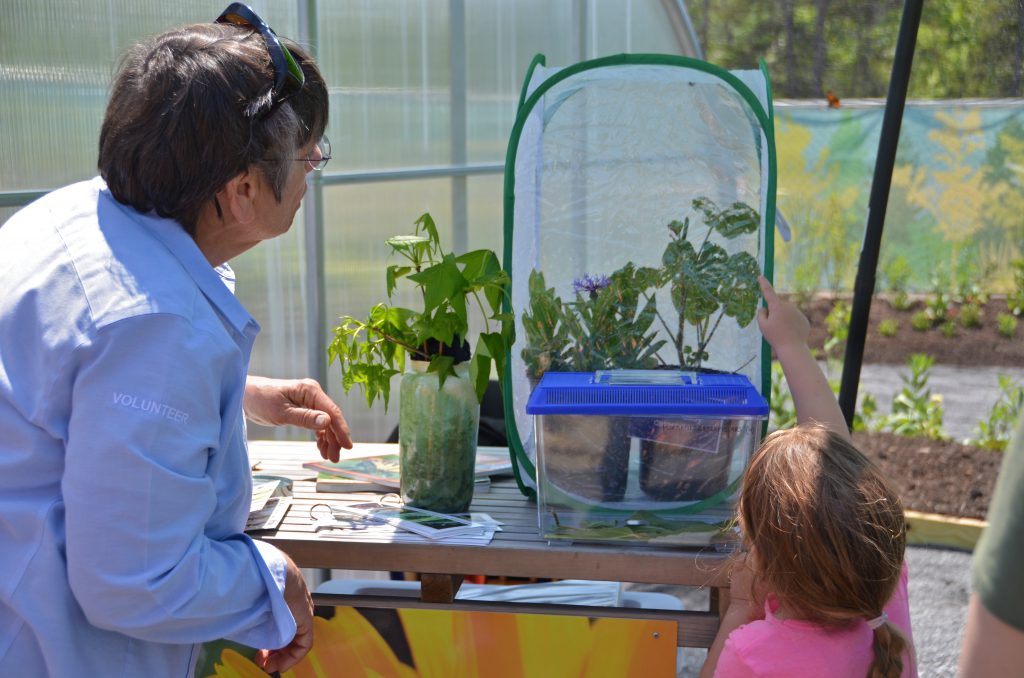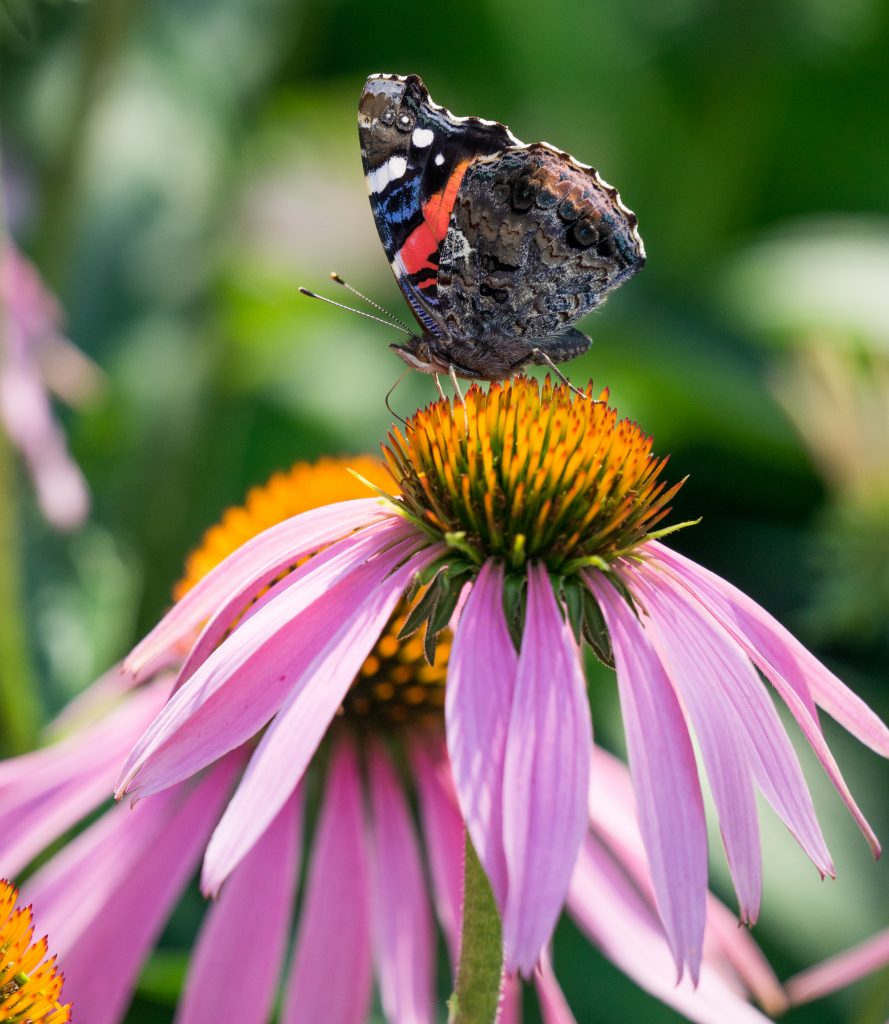Sparking Conversations and Inspiring Action on Climate Change
As an institution, the Gardens has always been driven by a desire to be more than a place to visit; we also aim to be an organization that engages deeply with guests and serves as a catalyst for change. As a public garden, we are in the unique position to demonstrate sustainable practices, further botanical research, and–perhaps most importantly—educate and inspire guests to be agents of change.
We are becoming increasingly committed to excellence in operational sustainability, climate mitigation research, and environmental education. For nearly 10 years, our education offices and programming have been housed in Maine’s first LEED Platinum building, the Bosarge Family Education Center. With the creation of a new Strategic Plan, the Gardens is now taking environmental sustainability more seriously than ever before—from infrastructural shifts towards carbon-neutral operations to an increased focus on sustainable gardening practices. At our planned Horticulture and Plant Science Center, our Plant Science and Collections Department will identify and mitigate the impacts of climate change on Maine’s plants, assist migration for essential East Coast natives, and explore cultivar solutions to help maintain biodiversity in our beloved Maine habitats. Over the next three years, our commitment to environmental sustainability will have an increasingly central role in our operations and our work.
In addition to greening our practices on-campus and participating in research and scientific solutions to mitigate the impacts of climate change, we are determined to inspire guests to contribute to environmental solutions. Hundreds of thousands of guests visit the Gardens each year, and the overwhelming majority have expressed an interest in learning about environmental issues while visiting. With this in mind, our education team has placed special emphasis on integrating environmental issues like climate change and biodiversity loss into our programming for all—from youth to adults and across signage, tours, classes and more.
How can you engage with the topic of climate change during your visit to the Gardens? This season, there are many ways for guests to explore how the changing climate is impacting the world around them. Throughout the Gardens, guests can find new signage featuring local stories of how our landscape is being impacted by climate change. These signs, generously funded with a grant from the Horizon Foundation, will be the first signs directly telling climate change-related stories at the Gardens. Additionally, our Discovery Cart, frequently located in the Lerner Garden of the Five Senses, will feature a family-friendly activity for guests to explore climate change in Maine, their carbon footprint, and ways to reduce their impact.

In addition to signage and activities for guests to investigate and drop in on during their visit, we are also excited to offer a new specialty tour focused on climate change. This tour flips the traditional format upside down and, instead, asks guests to explore answers to questions together. Through our own backgrounds and experiences, we all have our own unique relationship with the changing climate. Instead of focusing heavily on climate change facts and figures, this new tour will provide the space for participants to share their own views and explore the views of others. In the end, guests will have practiced the skills needed to discuss controversial environmental issues with family and friends and in their own communities.
This tour, and its innovative new dialogue-based approach to environmental education at the Gardens, was made possible through a grant from the Institute for Museum and Library Services. It was written in collaboration with partners at the Gulf of Maine Research Institute, Our Climate Commons, Maine Sea Grant, and Phipps Conservatory. Dialogue-based learning is a well-established practice in museums for engaging the public, especially with interpretation of complicated contemporary or historical issues (such as genocide, immigration, and slavery). However, we are unaware of similar practices embedded within botanical gardens, despite gardens being rich sites of learning and exchange. Therefore, while leaning on best practices from parallel fields, we expect this project to innovate new methods of engagement around environmental issues that will have a lasting impact for botanical gardens and the planet.
Issues like climate change are environmentally significant, emotionally intricate, and socially challenging topics. Because these issues are complex and carry enormous ecological, economic, and social risks, addressing them will challenge our communities to listen to each other’s concerns and collaborate to make the best decisions to mitigate local effects. Our dialogue-based learning initiatives, taking place at both existing exhibit stations and during the new facilitated dialogue-based tours, will provide the space for guests to practice those important skills.
Coastal Maine Botanical Gardens is just one organization amongst many in Maine addressing these pressing environmental issues. As we make use of our unique strengths and resources, we hope to invite guests to think about their unique strengths and experiences, and apply them to issues like climate change.
